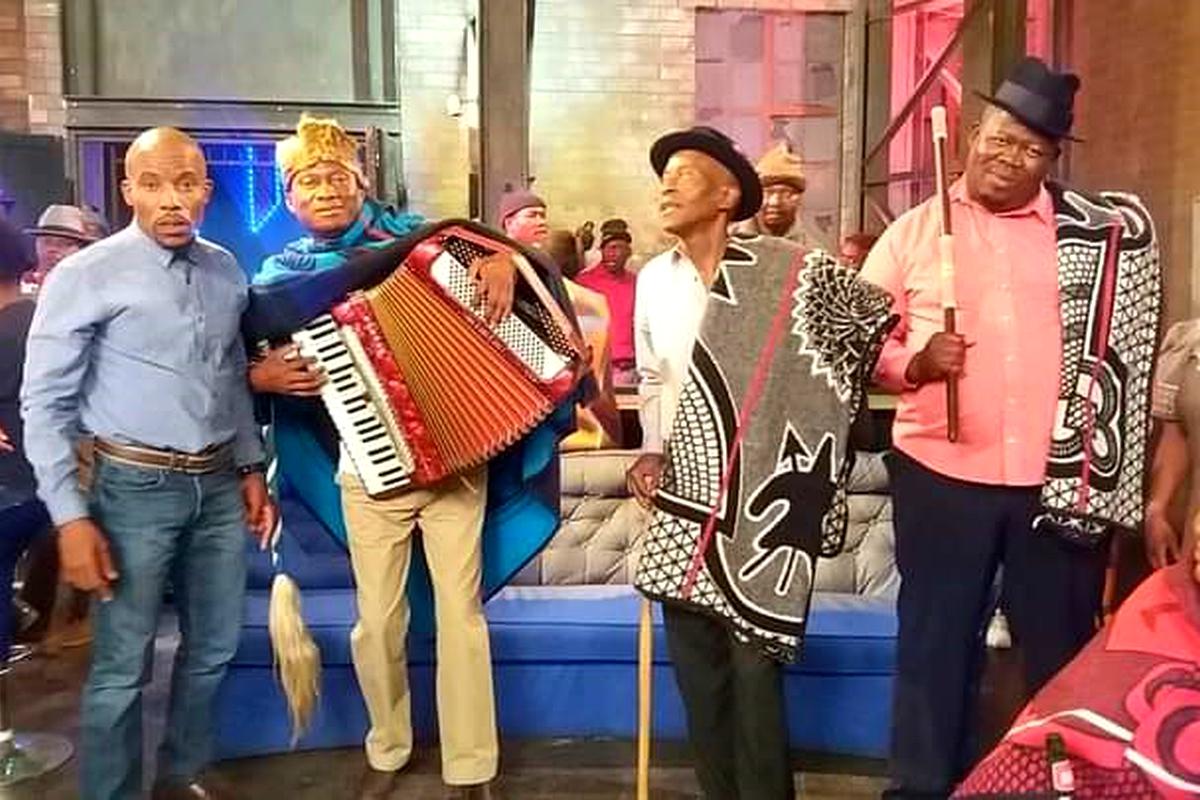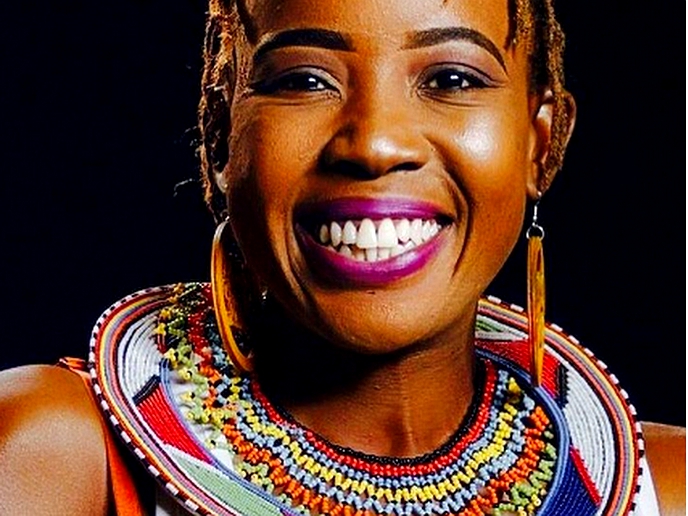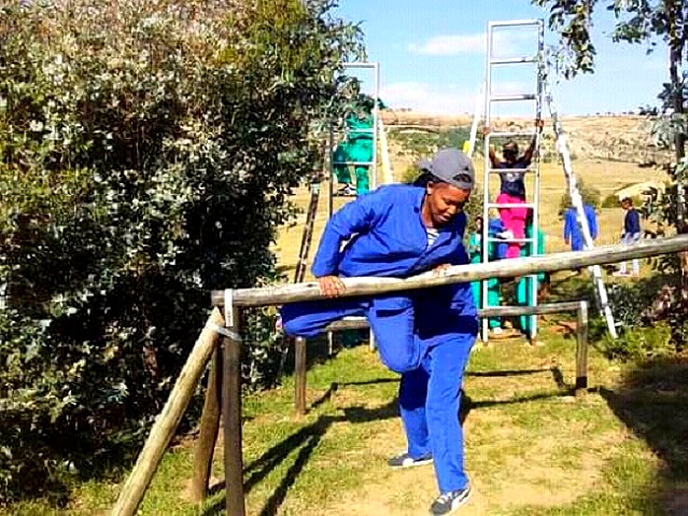ICONIC famo musician Lephoi Elias Mohale, better known as Mantša proclaims himself as the best relevant lyricist in the business, both in Lesotho and South Africa.
society
April 26, 2021
KABELO MASOABI
4 min read
Competition gives me the kicks – Mantša

Famo music legend Lephoi Elias Mohale aka Mantša (second from the left) with Rhythm City crew
The Mafeteng-born artiste, who denounces violence in famo music, and always advocates for good social morals as well as a peaceful life, says he is however, no scaredy-cat when it comes to reciting rock-solid poems.
He describes himself as a man who does not chicken out of any competition.
He adds: “In fact, competition stimulates my creativity. It gets the best out of me because I continuously strive to be number one in everything I do; be it in audio or video production. I make sure that my work is perfect and given enough attention. I am the champion of all the talented famo artistes.”
Also going by the moniker Khomo ea Koti, his confidence is more evident in the song called Talenta ea Ka from his latest album titled Bohale ba Tau no: 13, subtitled Lefu la Ngoanaka.
In Talenta ea Ka, he talks tough about his dominance in the famo music industry.
Part of the song goes: “I’m hot, I’m on flames, when I’m in Lesotho they call me steel, in Free State they call me the champion and in Kwazulu Natal they call me pepper....”
The album is dedicated to his late son, Lekena – a former zama zama (an illegal miner in the abandoned South African gold mines) who was killed on February 11, 2018 in Johannesburg.
Mantša’s wife died on February 11, 2012, an incident the singer who comes from a chieftainship family in Ha Seqobela, Matelile in the Mafeteng district is still reeling from.
“The date still brings a lot of pain to me to date. It takes me back to my sorrows. My wife was the pillar of my strength and my music made my son happy. He had gone to search for employment in Johannesburg but ended up in the wrong place. He went there without my blessings because I had previously forbidden him from leaving his family in Lesotho,” he says.
“My son had studied Mass Communication at the National University of Lesotho – IEMS, and once worked at Moafrika radio station before he became unemployed.
“The desperation to feed his family propelled him to become a zama-zama despite all the support I gave him.”
Mantša’s new album also consists of a track called Coronavirus. In this song, he warns the nation about the deadly disease, that has consumed scores of people around the world.
He narrates how people can take care of themselves to avoid being infected by the virus that has killed over 300 people in Lesotho, and over three million worldwide.
He composed the song during the first lockdown in Lesotho.
“I approached health authorities proposing to produce a song carrying a public alert about the pandemic. I wanted to alert the public via radio and other public addressing systems. Sadly, the authorities never took up my proposal and I later ended up including the song in my new album,” he says.
The veteran entertainer was born sixth out of 10 children and grew up herding cattle in Tajane, Mafeteng.
Enjoy our daily newsletter from today
Access exclusive newsletters, along with previews of new media releases.
As a young boy, he did not like famo music because it was labeled barbaric and linked to Marashea – a group of Basotho men who lived in South Africa and were notorious for gang wars, kidnappings and murders.
“Marashea were also infamous for kidnapping famo artistes and forcing them to perform without paying them.
“My mother used to tell me that people who follow famo music would never see heaven. But my perception about the music changed while I was herding cattle with my friends when I saw a famo band playing the accordion and singing along. This captivated me and I later learned how to play the instrument. Since that time, I have never looked back.
“A friend once told me that I would change the way people viewed that music in Lesotho and that I would release songs that people would love. That was way back in 1987 after I released my first album titled La Hlaha Lekanyane,” the legendary musician recalls with great satisfaction.
It is only now that Mantša realises just how much fame and respect the music gave him.
In 2018, he was invited to perform in one of the episodes of SABC’s popular daytime TV series “Rhythm City”.
Despite all his success, he worries about the future of music which is being compromised by piracy.
“Piracy is killing the entire music industry. Although my new album is still only available on hard discs, I mostly make sales through the internet using applications such as Deezer and YouTube.
Other albums by Mantša, who is also the Director of Mantša Music Entertainment include - Keletso, Ke Hloiloe, Ma Afrika, Bontate Ba bang and Selekeleke to mention but a few.
Tailored for you






